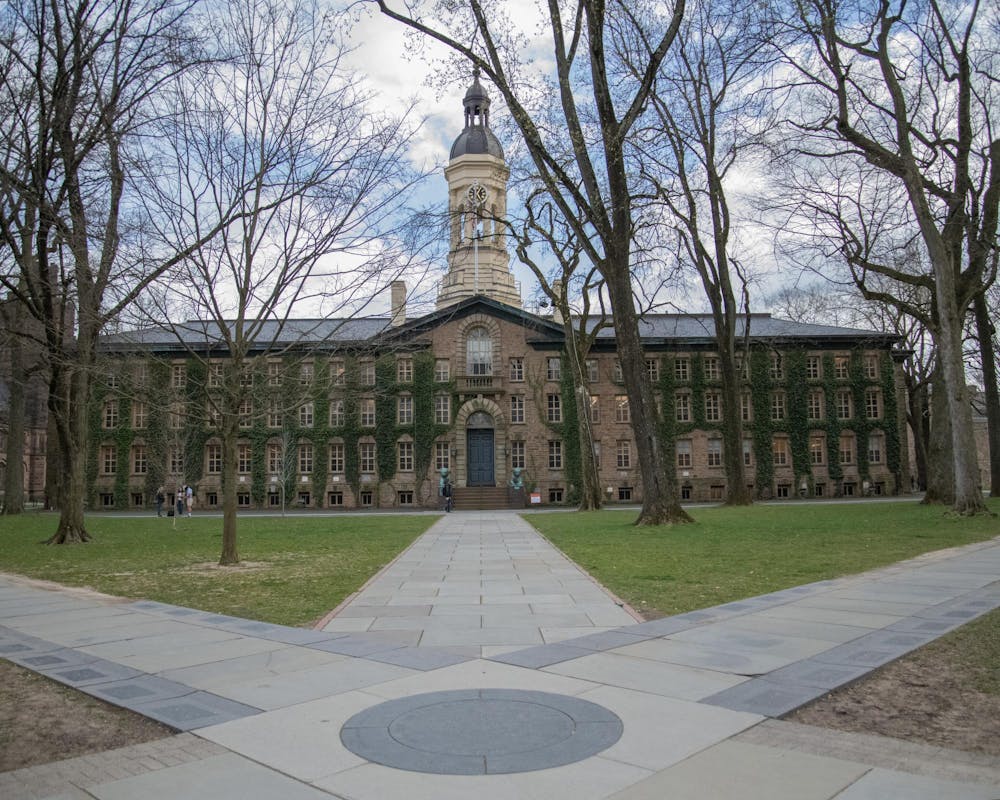In SPI 499: Making an Exoneree, students have no papers, problem sets, readings, or exams. They just work to exonerate wrongfully imprisoned people. Students in the class “spend an intensive semester as investigative journalists, documentarians, and social justice activists.” As an action-centered class, SPI 499 is a testament to the fact that civic engagement is something that can be incorporated into our everyday learning.
More of Princeton’s classes across all departments should offer explicit civic engagement or social justice components. In an institution that prides itself on being “in the nation’s service and the service of humanity,” offering more of these kinds of classes will serve to institutionalize and incentivize tangible change, allowing undergraduates to address more easily the constellation of issues plaguing the world.
After Marc Howard and Marty Tankleff paved the way for Georgetown students to upend the American justice system through Making an Exoneree in 2018, seven people have been freed, six have gained significant legal representation, and another seven have had their cases covered extensively in the press. These numbers might seem quantitatively small but are extremely significant considering how difficult it is for exonerations to happen and the fact that it is mostly pioneered by college students. Last spring, Princeton adapted this class model by creating SPI 499, focusing on 4 cases that have already resulted in an additional exoneration.
Classes that focus on developing technologies and ideas applicable to the real world are not unheard of at Princeton. EGR 380: Creating Value in the Real World expects that “by the end of this class sequence students will have designed and created smooth functioning products, services, systems, or actions that actual groups or communities want and are willing to fund going forward.” TigerJunction — and its fellow TigerApps that we all know and love — is the result of COS 333: Advanced Programming Techniques.
While the existence of these classes is promising, their scope is still very limited, not widespread, and not centered around service and civic engagement.
The University already has the Program for Community-Engaged Scholarship (ProCES) Courses that attempt to do this, stating that “students will engage with community-based knowledge through activities such as in-class discussion, guest speakers, public presentations, site visits, or research.” But in addition to courses with this critical bridge between academic ideas and community perspectives, classes that go further — with a focus on more practical programs seeking to bring about tangible impacts — are necessary.
The University has sufficient organizational unity, resources, and incentives to make more classes like SPI 499 commonplace at Princeton. To further incentivize the creation of and enrollment in these kinds of classes, the University should also welcome the idea of an additional distribution requirement or replace one of the two current Social Analysis requirements with a Social Impact one.
Politics students might gravitate toward a class where they will launch a grassroots campaign in a key area to advocate for a cause, be it climate change or taxation. Students in the natural sciences could research and address air and water pollution testing for neglected communities. Comparative Literature students might find themselves developing a curriculum that increases student exposure to diverse literature. All in all, there would be an emphasis on field-work and real world impact. Even Operations Research and Financial Engineering (ORFE) students could go into a social enterprise and implement their knowledge of financial management and operational efficiency to support it.

Classes that both put students on the vanguard of concrete social issues and ask them to contribute so tangibly to changing the world are revolutionary. This transformative model for education should be a more widespread option for courses across Princeton’s departments. If we in the Orange Bubble are supposed to be taught how to be changemakers, our education should not just stop at learning about change — it must also extend to the tangible application of it.
Contributing columnist Luqmaan Bamba is a freshman from Ghana and New York. He can be contacted at luqmaanbamba[at]princeton.edu.









